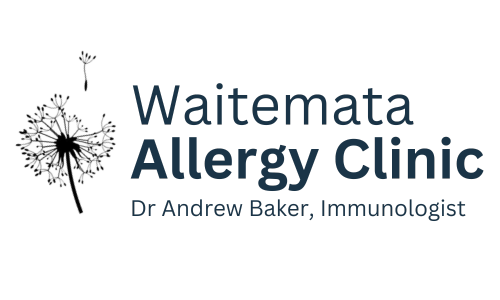FAQ
What is an Immunologist?
A Clinical Immunologist is a doctor with a specialist level of qualification for training in allergy diagnosis and management. They are also trained experts in immune deficiency.
Clinical Immunology and Allergy is a specialty branch of internal medicine. Other branches of internal medicine include cardiology, gastroenterology, respiratory medicine, renal medicine, healthcare of the elderly, rheumatology, and general internal medicine. All these physicians are internal medicine specialists.
How many Immunologists are there in New Zealand?
Our number of immunologists per capita is one of the lowest in the world at 1 Immunologist allergist per 400 000 people. In France and the USA this rate is much better at one immunologist per 20 000 people.
Some statistics suggest up to 30% of people have an allergy. Furthermore, many people are falsely diagnosed as having an allergy, which causes a lot of unnecessary stress. This is a big burden, for a very large number of people.
I believe we need to train more immunologists, so we have better leadership in accurate diagnosis and management of allergies. Furthermore, we as Immunologists can work on communicating our specialist allergy knowledge more effectively with GPs and patients.
Is allergy testing right for me?
We can provide clinical assessment and treatment for a wide range of allergies and immune disorders, as detailed on our services page. If you are unsure, you can email to enquire if testing is right for you.
There are some things that skin testing and specific IgEs are not usually helpful for. These include:
- Fatigue (‘brain fog’) – for these symptoms you might try a general internal medicine specialist
- Abdominal symptoms (pain, bloating, diarrhoea, constipation) – for these symptoms you might be best to first start with a registered dietitian or a gastroenterologist
Do you treat children?
We treat patients aged 10 years and over.
How do I book an appointment?
There are two ways to organise an appointment:
- Ask your GP to write a referral – this is preferred
- Email [email protected] with a description of your symptoms and we’ll let you know whether an appointment is right for you
What should I expect?
Initial appointments are 30 – 40 minutes long and to seek to understand your symptoms, and any other medical background. Skin testing (if considered helpful) can often be done at this appointment.
Sometimes diagnosis and management can be achieved in the initial appointment and skin testing, but in other cases several appointments are needed to complete your treatment and ongoing follow-up is required.
Planning for any further testing or management options will be discussed at the initial appointment, and this can include medication allergy challenge testing, food challenge testing or patch testing for contact dermatitis.
How should I prepare for my appointment?
Please bring:
- Details of any current medications
- Photos (if you have them) of any rashes or swelling
We’ll advise of any other requirements, such as food samples for skin allergy testing. If we plan to do skin testing in the initial appointment, please do not take any antihistamines for four days prior to your appointment (unless you have daily hives, urticaria or face swelling – if so, you can continue your daily antihistamine).
Can I do my appointment virtually?
Depending on your situation, it may be possible to complete an initial consultation via phone call. You can email to enquire about this.
